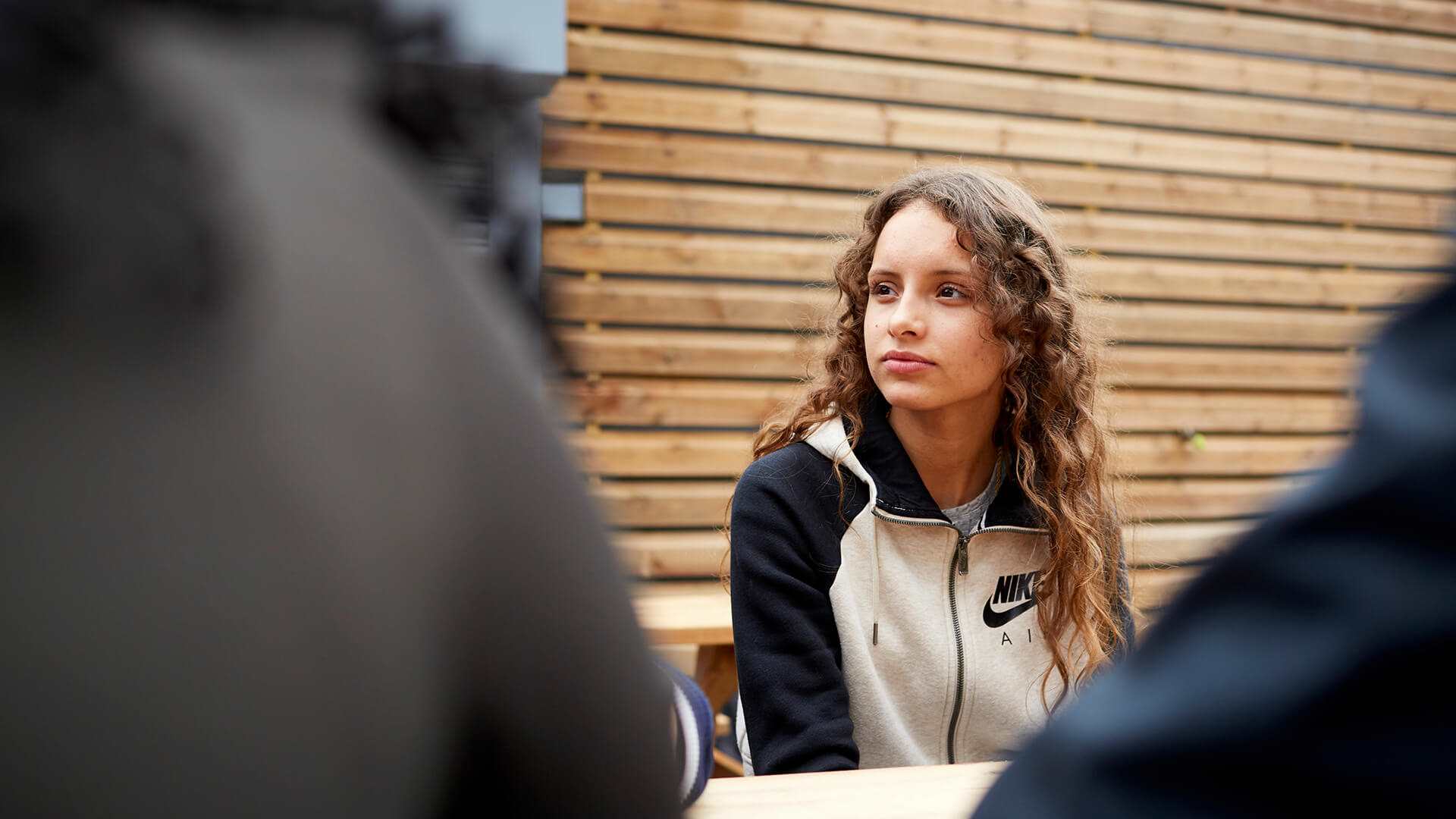Imagine walking into a shop, looking around at the empty shelves and seeing nothing there…The eating disorder is cheering you on: ‘Phew! A good excuse not to have anything.’ It’s telling you that your safe foods aren’t there, convincing you that you can’t have anything to eat now, at least until later this week when you will return to the shops.
Imagine sitting at your kitchen table, with your child who is in recovery. You serve up a meal. “I can’t have that; it’s got too much in it. I won’t have it - it isn’t on the meal plan.”
Imagine walking into a supermarket, people rushing around everywhere, grabbing things from the shelves. You get to a shelf where normally your safe foods are and you freeze. You stand there for what feels like an eternity, your eyes darting around, sweat dripping down your back, your palms clamming up. Where is the tin you normally get? What are you going to do? You know you have to keep eating but you aren’t sure if you can.
Imagine getting home from the shop having panicked and stockpiled. The food beckoning you in, asking you to eat it, convincing you to have more and more. ‘If you have this, it will make you feel okay,’ it tells you.
*
You might read these scenarios and think they’re ridiculous, but these are real-life problems that millions across the world are facing right now. People with eating disorders are currently dealing with an added complication to the coronavirus (COVID-19) that so many haven’t even thought of. With many people stockpiling, yes it is affecting elderly or vulnerable people, but it is also effecting people with serious mental illnesses as they face this uncertainty about whether they can access their safe foods and stay well.
People with eating disorders are currently dealing with an added complication to the coronavirus (COVID-19) that so many haven’t even thought of.
The added issue is that people with eating disorders are still massively misunderstood and there is a huge amount of stigma that so many face. It means that for so many of us going through this we feel ashamed to mention this. We are embarrassed to share these fears about food, routine or exercise because we don’t want to be called self-centred or selfish.
Despite being 11 years into my recovery, I am fearful of what is coming and whether it will create cracks in my recovery. Will I be able to exercise at all? Will I be able to get the food I like or will it just be my unsafe food left on the shelf? On top of this are feelings of guilt for feeling this way when in many ways I am lucky - I have a family, friends, a flat…
Despite being 11 years into my recovery, I am fearful of what is coming and whether it will create cracks in my recovery.
Firstly, please know that none of us should feel ashamed for what we feel. You are not alone in these feelings! I have had hundreds of people already contact me with their concerns around food, stockpiling and self-isolation.
This will help you if you are working, but also to keep your meals and snacks in place. Try not to make it too rigid, but creating some structure will help your day.
Yes, wearing joggers can feel amazing (I know how good it does feel), but if we get into that mindset, we end up wearing clothing that might not be that good for our brains!
I didn’t stockpile this food, but I bought some essentials from breakfast foods to cans of tuna. Take your time and make sure you get the support you need when doing this.
If you have a fear of binging, try putting the food somewhere else in the house where it is less accessible. Alternatively, write a meal plan to help you stick to your meals throughout the day.
The most frustrating word for so many! Yes, it feels scary not knowing if there will come a point when I won’t be able to go for a run. When I started to notice these feelings I was afraid they were a marker of my illness still being there. I know I need to be mindful of this but for me now it is about having people to be accountable to, and being okay stopping all day and doing nothing. There are workouts online I can do a few times in the week if necessary.
We all need people around us that we can trust and be honest with, people that can keep an eye on us if we need it, people who check in with us and take our feelings seriously. Working this out in this time is critical. I struggle with this as I am normally the fixer, the strong one, but do you know what? It is okay to need that extra support.
I am trying to remind myself that the eating disorder never actually did anything for me!
Eating disorders thrive on isolation so turn your meal times into social activities over the phone or on Skype!
Please remember that just because you may be self-isolating, your body still needs to eat.
More information and advice
Where to get help
-
Beat
Offers information and support for anybody affected by eating disorders.
One-to-one web chat available.
Enter your postcode in the HelpFinder to see what eating disorder support is available in your area.
Information on helpline accessibility and confidentiality available here.
- Opening times:
- 365 days a year - weekdays (9am - 8pm); weekends (4pm - 8pm)
-
The Mix
Offers support to anyone under 25 about anything that’s troubling them.
Email support available via their online contact form.
Free 1-2-1 webchat service available.
Free short-term counselling service available.
- Opening times:
- 3pm - 12am, seven days a week






